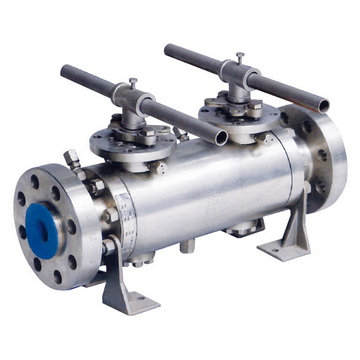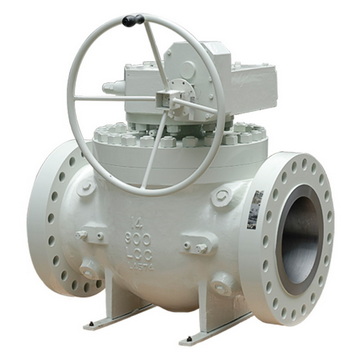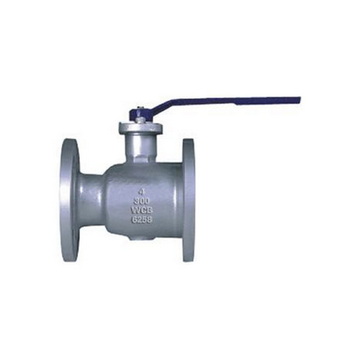What to Look for in a Custom Metal Seated Ball Valve Manufacturer?
Content Menu
● Understanding Metal Seated Ball Valves
● Core Considerations When Selecting a Manufacturer
>> Expertise in Custom Design and Engineering
>> Advanced Manufacturing and Quality Assurance
>> Diverse Product Range and Configurations
>> Material Selection and Surface Technologies
>> OEM Services and Customer Support
● Technical Features and Innovations
>> 1. What are the main advantages of metal seated ball valves over soft seated ones?
>> 2. What industries benefit most from using metal seated ball valves?
>> 3. How does customization improve metal seated ball valve performance?
>> 4. What certifications should a reputable metal seated ball valve manufacturer have?
>> 5. How are metal seated ball valves maintained and serviced?
Metal seated ball valves are indispensable components in industrial applications where extreme conditions demand reliability, strength, and precision. Unlike soft-seated valves, metal seated ball valves are engineered with metal-to-metal sealing surfaces that provide superior durability and performance in high temperature, high pressure, abrasive, and corrosive environments. Such valves are crucial in sectors including oil and gas, offshore platforms, seawater desalination, petrochemical processing, power generation, and mining. For companies seeking custom metal seated ball valves, understanding what to look for in a manufacturer is key to ensuring operational excellence, safety, and cost-efficiency.

Understanding Metal Seated Ball Valves
Metal seated ball valves utilize hard, wear-resistant metal alloys such as stainless steel, chromium carbide, tungsten carbide, or nickel alloys in their seats and balls rather than soft materials like PTFE or other polymers. This metal-to-metal contact enables them to withstand temperatures from cryogenic lows to above 800°C and pressures reaching Class 2500 and beyond, while maintaining a tight seal under severe erosive and corrosive conditions. The design typically features lapped or coated seats that minimize friction and wear, extending service life and offering reliable shutoff performance (up to ANSI Class VI).
Key applications include:
- Upstream, midstream, and downstream oil and gas processing
- Offshore drilling platforms and subsea installations
- Seawater desalination and water treatment plants
- High-pressure steam systems and power generation plants
- Chemical processing under harsh corrosive media
- Mining slurry and abrasive particle handling
These valves maintain isolation and flow control integrity where traditional soft-seated valves might fail prematurely due to seat degradation.
Core Considerations When Selecting a Manufacturer
Expertise in Custom Design and Engineering
A top-tier metal seated ball valve manufacturer should have profound expertise in customizing valves tailored to precise operating parameters. This includes an ability to evaluate process conditions such as temperature extremes, pressure fluctuations, media abrasiveness, corrosiveness, and flow dynamics. Based on these criteria, the manufacturer customizes seat material choices, coatings (for example, HVOF-applied chromium or tungsten carbide), valve body material, torque requirements, and valve type (floating, trunnion-mounted, or top-entry). The engineering process should involve advanced simulation and testing to ensure optimal sealing performance and durability.
Advanced Manufacturing and Quality Assurance
High-quality metal seated valves require precision manufacturing processes including forging or investment casting combined with CNC machining to exact tolerances. The metal seats and balls undergo hard facing or overlay coatings with materials such as Stellite 6, chromium carbide, or tungsten carbide applied through cutting-edge thermal spray techniques like HVOF to maximize erosion and corrosion resistance. Quality assurance programs must incorporate dimensional inspections, lapping for perfect sealing surfaces, and pressure and leak testing according to international standards (API 6D, API 598, ANSI/ASME B16.34). Certifications such as ISO 9001 and API 607 fire-safe design compliance are critical indicators of manufacturing reliability.
Diverse Product Range and Configurations
A reputable manufacturer will offer a broad portfolio of metal seated ball valve designs to suit various installation demands. This includes floating ball valves, which rely on the ball's slight axial movement for sealing; trunnion mounted valves with shaft support for larger sizes or higher pressures; and top entry valves designed for ease of maintenance. Additionally, multiple end connection types such as flanged (RF, RTJ), butt weld, socket weld, threaded (NPT, BSP), and specialized sealing designs must be available. The ability to provide full and reduced bore valves, multi-port configurations like 3-way valves, and options such as V-port balls for flow control underscores manufacturing versatility.
Material Selection and Surface Technologies
The body, ball, seat, and stem materials must be carefully selected based on application demands. Common valve body materials include carbon steel, stainless steel (316, 304), duplex and super duplex stainless steels, nickel alloys (Inconel, Hastelloy), and titanium for highly corrosive environments. Internal components are frequently surfaced with high-performance coatings like tungsten carbide, chromium carbide, or Stellite to enhance resistance to abrasion and corrosion. The choice of seat sealing design can include spring-loaded downstream seats or wave spring designs to maintain tight sealing despite thermal expansion or wear.
Industry-Specific Compliance and Application Expertise
Manufacturers with strong experience in specific industries such as offshore oil and gas or seawater desalination understand critical operational constraints like fire-safe requirements, fugitive emission limits, and material traceability standards. The valves must comply with regulatory requirements (API, ASME, AWWA, NACE) and be rated to withstand conditions such as hydrogen sulfide exposure or extreme cyclic pressures. Tailored technical support to assist clients in valve selection, maintenance, and troubleshooting is a valuable service differentiating top providers.

OEM Services and Customer Support
Flexibility in OEM manufacturing allows branding and customizing valves to client specifications. Strong logistics, scalable production capabilities, and post-sale technical assistance further ensure customer satisfaction and long-term partnerships. Custom packaging, dedicated quality control documentation, and traceability enhance reliability and confidence in supply chain consistency.
Technical Features and Innovations
Metal seated ball valves feature several technical innovations distinguishing them from conventional valves:
- Low Torque Operating Mechanisms: Designs incorporating wave springs or Belleville washers to preload metal seats reduce operating torque, extending actuator life and enabling automation.
- Fire-Safe Designs: Special seat arrangements and secondary graphite seals ensure valves remain leak-tight during fire exposure, crucial for hazardous service.
- Bi-Directional Tight Shutoff: Precision lapping and metal-to-metal sealing achieve bubble-tight shutoff in both flow directions, supporting safety and operational integrity.
- Easy Maintenance: Split body designs and top entry configurations permit on-site servicing without valve removal, minimizing downtime.
- Enhanced Wear Resistance: Advanced coatings and hardened seats withstand severe abrasion and chemical attack, sustaining valve integrity in slurry or sour gas environments.
Conclusion
Choosing the right custom metal seated ball valve manufacturer demands a comprehensive evaluation of engineering capability, manufacturing excellence, material expertise, and industry experience. The durability and reliability of metal seated ball valves are vital to ensure uninterrupted, safe operation in the most demanding industrial environments. Partnering with a manufacturer that combines cutting-edge technology, rigorous quality control, and tailored customer service maximizes valve performance and cost efficiency. For companies seeking robust, high-performance metal seated ball valves tailored to their specific operational challenges, selecting a reputable and experienced manufacturer is the foundation for success.
Are you ready to upgrade your flow control solutions with expertly engineered metal seated ball valves? Contact us today. Our specialists are eager to provide customized recommendations and support designed to meet your industry's toughest requirements.

Frequently Asked Questions
1. What are the main advantages of metal seated ball valves over soft seated ones?
Metal seated ball valves provide superior abrasion resistance, higher temperature and pressure capabilities, longer service life, and better performance in harsh, corrosive environments compared to soft-seated valves which are prone to wear and temperature limits.
2. What industries benefit most from using metal seated ball valves?
Industries such as oil and gas (upstream to downstream), offshore drilling, chemical processing, power generation, seawater desalination, and mining commonly use metal seated ball valves for reliable isolation under severe service conditions.
3. How does customization improve metal seated ball valve performance?
Customization allows valve design to match specific process conditions including media characteristics, temperature, pressure, and flow control needs. Tailored material selections, coatings, and configurations enhance valve durability and sealing integrity in demanding applications.
4. What certifications should a reputable metal seated ball valve manufacturer have?
Look for ISO 9001 quality management, API 6D, API 607 for fire-safe design, API 598 for testing standards, ASME B16.34 for pressure-temperature ratings, and NACE compliance for corrosion resistance to ensure product reliability and regulatory adherence.
5. How are metal seated ball valves maintained and serviced?
Many are designed with split bodies or top entry configurations allowing in-service maintenance without removal. Regular inspection and timely replacement of seats and seals extend valve life and maintain reliable performance.
Hot tags: Custom Metal Seated Ball Valve Manufacturer Selection, Best Custom Metal Seated Ball Valve Suppliers, How To Choose Metal Seated Ball Valve Manufacturer, Reliable Metal Seated Ball Valve Manufacturers, Custom Ball Valve Manufacturing Companies, Top Metal Seated Ball Valve Manufacturers Worldwide, Factors To Consider In Custom Ball Valve Suppliers, Metal Seated Ball Valve Manufacturer Quality Standards, Choosing The Right Custom Valve Manufacturer, Trusted Custom Metal Seated Ball Valve Exporters